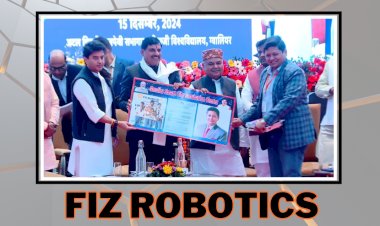The Rising Startup Ecosystem of Tier 2 and Tier 3 cities in India.

The Indian startup ecosystem is witnessing a transformation with more and more companies now opting for tier-2 or tier-3 cities as their preferred location. Entrepreneurs are increasingly turning to smaller cities for their operations which is leading to new opportunities being opened up in the local market.
Around half of the startups registered on the startup India Portal, had their business centers in small cities. With the rapid technological advancements and the boom of e-commerce in the country, it has now become easier to set up centers even in small towns while tapping the unused local resources of the local market. Startups in such cities are looking to solve local problems largely rather than focusing on the bigger problems.
What makes Tier 2 Indian cities a great place to startup:
Most of these cities are host to institutes of higher academic education in both business and technology, providing startup founders with access to a ready talent pool. A relatively lower cost of living also means that nascent startups that are bootstrapped or have yet to raise any significant funding, can get a much greater bang for their buck.
Rapidly increasing internet penetration and improvement in the reliability of connections reduced the digital infrastructure gap between tier 1 and 2 Indian cities, high population densities along with a greater acceptance of the internet as a medium of commerce over physical stores in non-metro cities has also helped turn them into ready markets for the kind of services and products many startups offer.
The redistribution of both skilled and unskilled labor driven by the pandemic, along with increased VC willingness to invest over Zoom calls rather than insisting upon in-person meetings, is also expected to help give fresh impetus to the startup ecosystems mushrooming in these tier 2 and tier 3 cities.
Digital India, Startup India, and Smart Cities Mission have accelerated the urban transformation of Tier 2 and 3 cities in India. The state governments have also undertaken various initiatives to attract IT firms and provide a conducive ecosystem by establishing industrial clusters, SEZs, and various skill development initiatives to stay ahead in the digitization process. Industry bodies such as NASSCOM, ASSOCHAM, and TIE have also created access to financial assistance, mentorship, incubation, and network opportunities to support path-breaking ideas from the hinterlands
Be it healthcare, ed-tech, agriculture, or deep tech, there are now startups invested in every sector that is trying to support the local economy. Cities like Indore, Jaipur, Bhubaneswar Bhopal and Ahmedabad are coming up as the go-to options for many business enthusiasts.
Moreover, the high rents in metropolitan cities act as one of the biggest deterrents for many businesses and people are reluctant to invest that kind of money. But when setting up a company in a small city, this operational cost can be drastically brought down and directed towards other resources.
Better infrastructure support, faster internet, favorable working conditions, better transport communication, and accessibility to a large pool of talent have progressively promoted the growth of entrepreneurship in tier-2 and tier-3 cities. At a time when small cities like Surat, Jaipur, Indore, and Patna have shown a growth of more than 40 percent, the new paradigm shift has given a boost to the entrepreneurial ecosystem in these cities.
The government is also now pushing hard to set up a positive working startup ecosystem in India while addressing startup concerns by providing innovative and sustainable solutions. For example, the state government of Chhattisgarh, Kerala, and Bihar has launched programs in their respective states to boost the startup facility in these countries. Punjab, Madhya Pradesh, and Uttar Pradesh are some of the other states that are following the course and trying to augment the growth of startups.
























